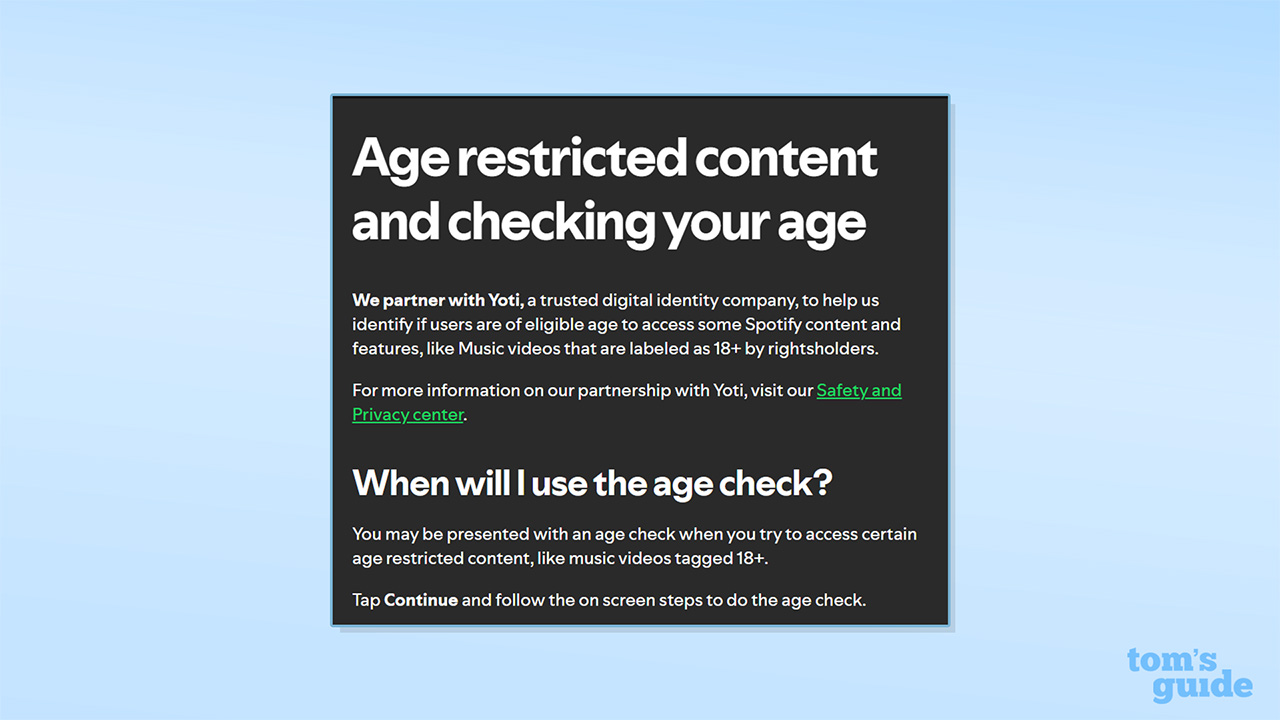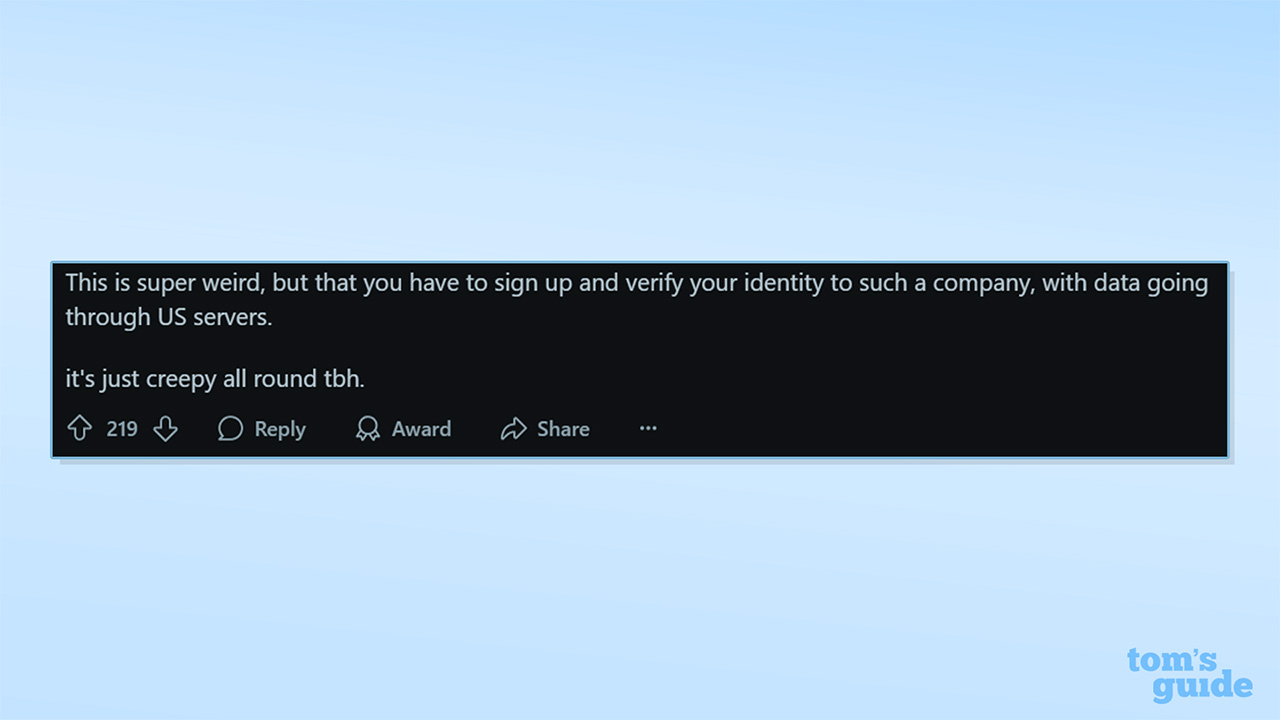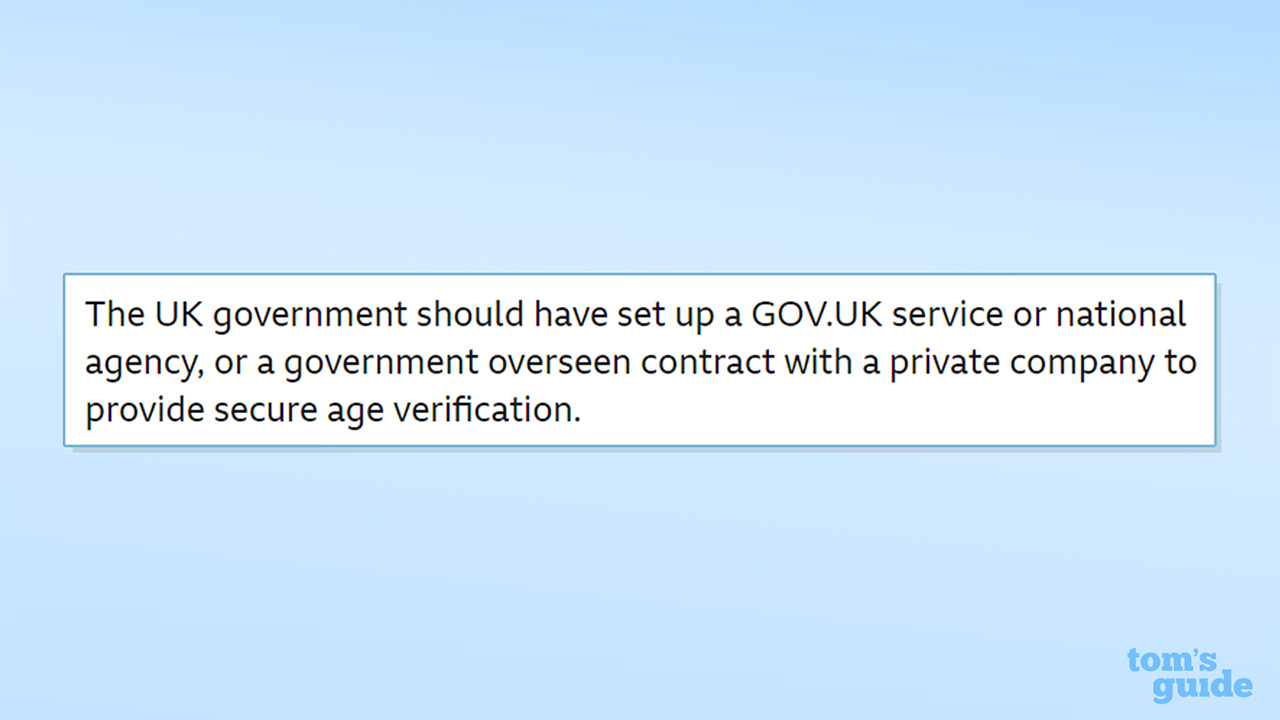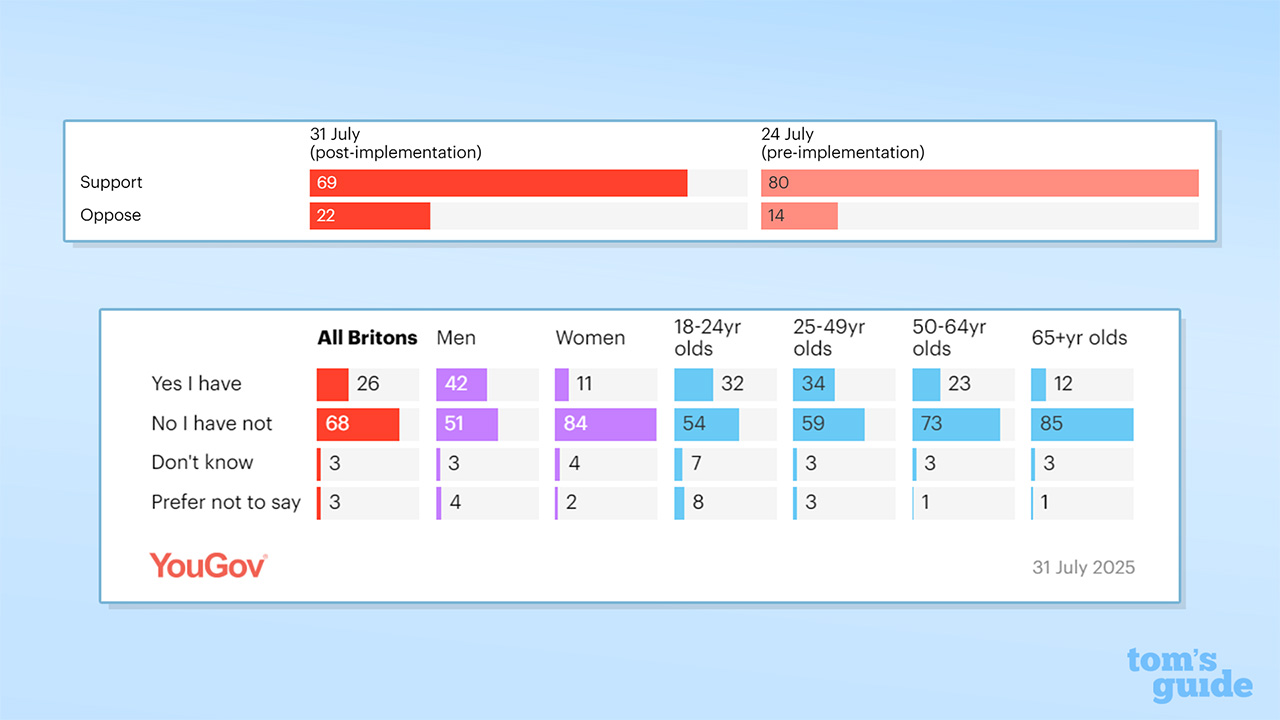The debate over the UK's Online Safety Act intensifies as internet users share their thoughts
There are strong opinions on both sides

The week following the Online Safety Act's implementation in the UK has seen people react with strong opinions and engage in heated debates.
The law requires age verification checks to be completed to view content marked as "explicit" or deemed unsafe for under-18s to access.
But searches for the best VPNs have surged as people look to bypass age verification checks due to their perceived cybersecurity risks.
Photo IDs, credit card information and selfies are just some of the personal information that need to be submitted, and many are concerned about how this data is stored and the consequences of a breach.
A petition calling on the UK government to repeal the act has reached over 460,000 signatures, and people have been sharing their views on the issue.
NordVPN: our top-rated VPN overall
From our testing, we consider NordVPN to be the best VPN for most people. This is down to its rock-solid security and privacy, excellent speeds and great unblocking performance.
Prices start from £2.31 / $2.91 per month for a two-year subscription, which includes an exclusive four months free for Tom's Guide readers. Plus, you can get an Amazon gift card worth up to £50 / $50 if you sign up for NordVPN's Plus or Complete memberships. A 30-day money-back guarantee applies to all subscriptions.
Major privacy concerns
The Online Safety Act is well-intentioned, and it's right to protect vulnerable internet users from seeing harmful content.
But the privacy dangers need to be addressed, and this is the argument many opponents to the legislation are making.
One Reddit user was bothered by censorship. They said: "I don't want to give my ID to a third-party company that could easily be faked on a scam website and I don't like the path this is heading on especially with censoring information such as Wikipedia and even music on Spotify."
Content we wouldn't typically consider as "explicit material" has been subject to age verification checks.

Music streaming service Spotify is reportedly asking users to verify their age. Social media site X and Reddit are implementing checks, and the BBC has reported posts detailing information about conflicts in Gaza and Ukraine are being restructured.
Another Reddit user corroborated these reports by saying, "in the last few days, they've restricted access to safe spaces for abuse survivors, subs about alcohol, Wikipedia articles, certain news pages, Spotify now apparently requires it to listen to some content."
People seem to be frustrated about the wide reach of these checks. "I shouldn't have to hand my ID over now to an American company just to listen to certain content on Spotify," a Reddit user said. Another called it "creepy all round."

Being scammed was a worry for some people, and the huge database of personal data that will inevitably be created makes this understandable.
People believe the idea of a breach is inevitable. "Having to give your ID to every website that asks for it is just going to result in lots more people getting scammed and people getting their private data stolen when these companies invariably get a security breach," commented one Reddit user.
This idea of "when, not if" was also shared by cybersecurity experts. Windscribe VPN founder Yegor Sak said: "These laws are a disaster waiting to happen." Obscura VPN founder Carl Dong said the law was a "ticking time-bomb for the privacy of UK citizens."
Some people appear to be frustrated that genuine good intentions have been hampered by poor cybersecurity practices.
"A lot of the ideas for the legislation they’re writing are good, just poorly executed due to rushing the process," a Reddit user said. "If they took their time and actually thought through the legislation they’re proposing they’d almost certainly have a win on their hands."
One BBC commenter said the government should've set up a GOV.UK service or a national agency to provide a more secure age verification service and not rely on third parties.

A section of people online will be aware of how dangerous handing out our sensitive personal data can be. But there will be many in the UK who genuinely don't know.
A Reddit user asked an important question. "Does anyone know what the consequences or negatives of verifying your age are? Who holds the information? What can they do with this information?"
Most Britons appear to support the law
Despite the strong opposition, a YouGov poll has found the majority of Britons surveyed support the law — although this has declined slightly in the week since it came into effect.
As of July 31, 69% said they support the law compared to 80% pre-implementation. Opposition has increased from 14% to 22%.
YouGov also found that as of July 31, 26% of Britons had encountered age verification checks, but 68% hadn't.

Some Reddit users dismissed concerns and compared the law to showing ID when buying alcohol.
This is true, although a bartender or shop assistant doesn't store and/or record your ID after verifying your age.
Others said our data already exists out there, and these ID checks won't make a difference.
One told people to "get a grip," adding, "if you’ve been clicking accept on the cookie notice, have a Facebook account, or even worse use your Facebook account to login to other sites then you’re already 100% compromised."
"Sharing a selfie with Persona [an age-check service] to access adult content won’t do any more damage."
Replying to the above, a user said, "I’m honestly baffled that so many people really thought that they were hiding their identity and information before this."
MP Peter Kyle is the UK's Secretary of State for Science, Innovation and Technology. Kyle has been very vocal in his support for the Online Safety Act and called it "the biggest step forward in child safety since the internet was created."
If you want to overturn the Online Safety Act you are on the side of predators. It is as simple as that. https://t.co/oVArgFvpcWJuly 29, 2025
However, he has also attracted controversy with some of his comments attacking those who oppose the law. In a post on X, Kyle doubled down and said, "if you want to overturn the Online Safety Act you are on the side of predators. It is as simple as that."
The act is being enforced by UK regulator OFCOM. It said the law was a "key step in helping to protect children from harmful content when they’re online."
We test and review VPN services in the context of legal recreational uses. For example: 1. Accessing a service from another country (subject to the terms and conditions of that service). 2. Protecting your online security and strengthening your online privacy when abroad. We do not support or condone the illegal or malicious use of VPN services. Consuming pirated content that is paid-for is neither endorsed nor approved by Future Publishing.

George is a Staff Writer at Tom's Guide, covering VPN, privacy, and cybersecurity news. He is especially interested in digital rights and censorship, and its interplay with politics. Outside of work, George is passionate about music, Star Wars, and Karate.
You must confirm your public display name before commenting
Please logout and then login again, you will then be prompted to enter your display name.
 Club Benefits
Club Benefits






